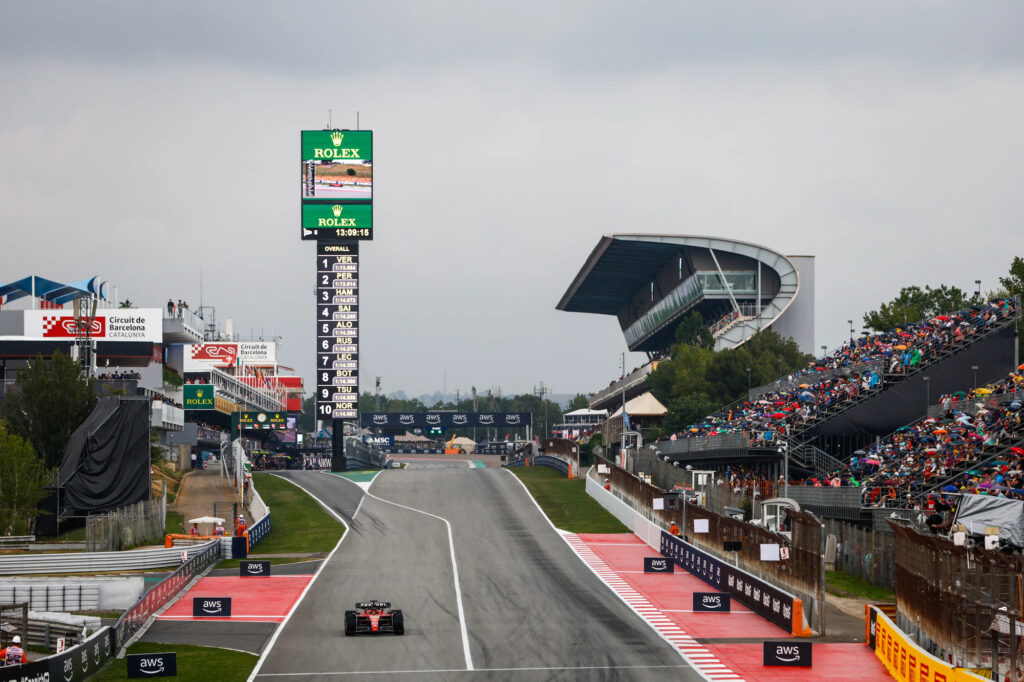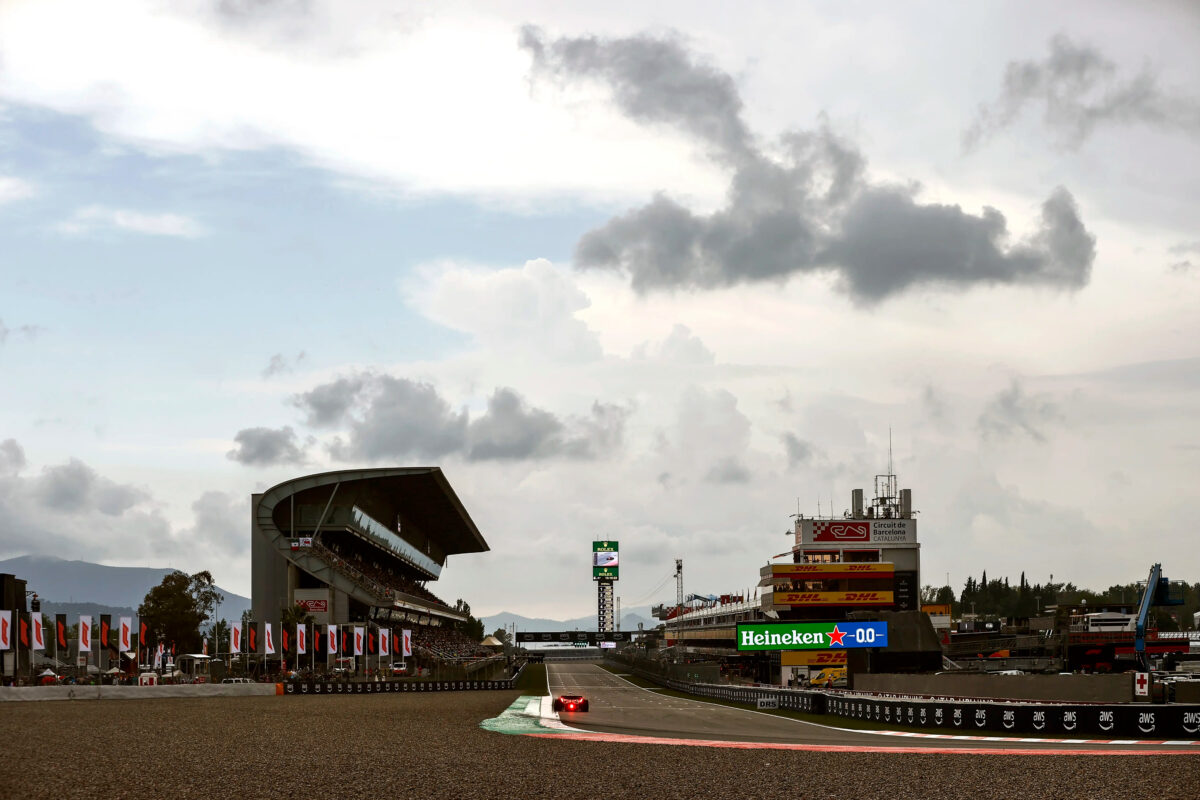On January 23rd, it was announced that the Madrid GP would join the Formula 1 calendar in 2026, leaving many questions regarding the Barcelona GP.
F1 CEO Stefano Domenicali said that the sport might still race there, but is it a race worth keeping in terms of the spectacle and entertainment that it has provided in the last few years? We decided to analyze the races from 2014 to 2023 in order to try to answer that question.
Our analysis is based on the number of overtakes, which does not always tell whether a race was good or not, but we believe it could be a good indicator. However, to make an even better study, we will also consider what happened during the Grand Prix.
The number of overtakes won’t take into account the ones made on the first lap and the ones made while some drivers were in the pits.
2014
The 2014 edition offered 42 overtakes, with some battles in the midfield between the two Ferraris, Red Bull against McLaren and Williams, but nothing more. The two Mercedes were close at the end of the race, but did not fight for positions. Overall, there weren’t many things to highlight, with Mercedes dominating the whole time.
2015
One year later, the number of overtakes reduced to just 29. The 2015 edition wasn’t much different from the previous year’s one. It was more of a strategy battle, and the action on track was scarce. There were a few battles like the one between Carlos Sainz and Daniil Kvjat, but apart from that, Nico Rosberg led from start to finish.
2016
In 2016, there were 53 overtakes, one of the highest numbers for the Barcelona GP. Probably, that year was one of the most entertaining ones, as the two dominating cars (Mercedes) crashed out on the opening lap, leaving other teams fighting for the win.
Max Verstappen had just joined Red Bull, replacing Kvjat, and he immediately surprised everyone by capitalizing on Mercedes’ mistake. Ferrari seemed to be able to win, but the Dutch driver managed to cope with the pressure that Kimi Räikkönen was putting on him in the final stages of the race and won the GP. It was the most entertaining race so far, without a doubt.
2017
2017 was the first year with new technical rules and completely different cars. Even though there were only 19 overtakes, the race felt rather entertaining. The battle for the championship was on between Sebastian Vettel and Lewis Hamilton, and the race start provided a lot of drama immediately. Raikkonen and Verstappen collided, Felipe Massa suffered a puncture, and Vettel overtook Hamilton for the lead.
Vettel had to overtake a Red Bull and Valtteri Bottas after the pit stop to stay ahead of the Brit. He managed to do so, producing one of his best overtakes as he went on the grass to overtake the Finn. The German and Hamilton met each other on track a few laps later, and after banging tires, Vettel kept the position. However, the Mercedes driver took revenge and overtook Vettel to win the race.
2018
In 2018, the overtakes were even less than the year before, just 12. Once again, it was Vettel against Hamilton. This time, though, there wasn’t much action on track, and the Mercedes driver dominated from start to finish. It was another rather disappointing Spanish GP.
2019
The 2019 edition saw different cars again, with simpler aerodynamic rules to improve close racing. However, there were only 25 overtakes, and apart from a crash between Lance Stroll and Lando Norris, which brought out a safety car, the race was once again not that entertaining, and there wasn’t a real battle for the lead. Hamilton was the winner that year.

2020
The 2020 edition wasn’t much different. It was another controlled race by the leader (Hamilton), with not many overtakes on track except for a few battles in the midfield. The result: just 32 overtakes.
2021
In 2021, there was a lot more action than in the two previous years, with 51 overtakes. Hamilton and Verstappen were fighting for the lead in the standings and they even battled on track. The rest of the overtakes were mainly in the midfield, and even though there were many, the race was still a bit dull.
2022
2022 was probably the most entertaining after a while. The overtakes were 48, and there was an actual battle for the lead with a lot of drama, too. Charles Leclerc was easily controlling the race when his engine let him down, allowing George Russell to take the lead. However, Verstappen (who had gone off track and almost crashed earlier) was right on his tail.
In the end, Red Bull showed its supremacy and went on to win with a 1-2. Meanwhile, Hamilton and Carlos Sainz battled hard until the last lap for P4. The new regulations that came into force in 2022 seemed to be able to achieve even better and closer racing.
2023
2023 saw a significant change in the track’s layout as the final chicane was removed to give space for a faster corner, which allowed the cars to follow each other more closely. That was a clever idea, as the race produced 65 overtakes. Thus, the Grand Prix proved to be pretty enjoyable even though the majority of the action was on the main straight thanks to the use of the DRS, and Verstappen’s leadership was never at risk.
A final thought
The average number of overtakes from 2014 to 2023 was 37.6%. The Barcelona GP has always had a number of overtakes similar to other races during the past seasons, so it wouldn’t be fair to criticize it only taking into account that data.
However, as it was mentioned at the beginning, the actual entertainment of the race was analyzed, too. Therefore, if we look at how much the fans enjoyed those editions, we could say that most of the time, the races weren’t keeping those watching on the edge of their seats.
Of course, not every Grand Prix can provide legendary races like the 2021 Monza edition or the 2020 Turkish GP. Despite that, some adjectives that could describe the Barcelona GP could be dull, unemotional, or unremarkable. If some races can create great memories once in a while (at least), Barcelona doesn’t seem to be one of those.
We are not saying that replacing it with yet another street race circuit is the best idea, but even if Barcelona won’t be featured in the future Formula 1 calendar, would it actually be that great of a loss?

